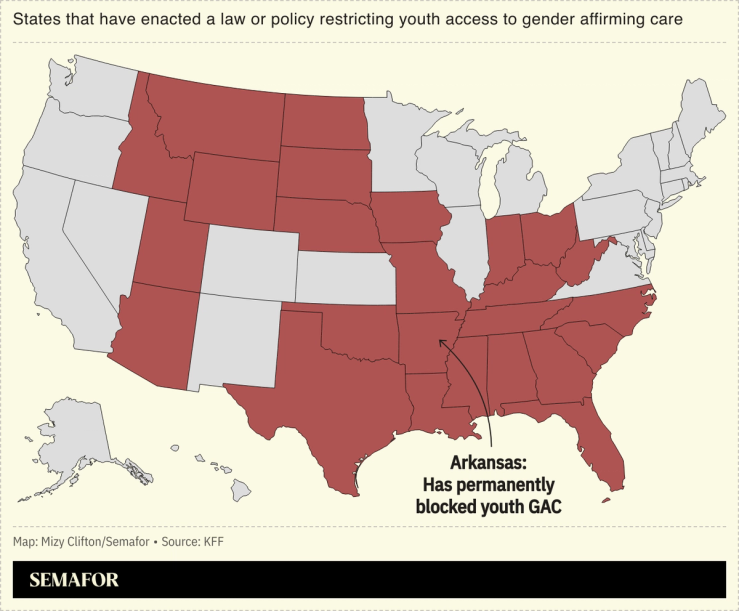The News
The UK government announced a ban on private prescriptions of puberty blockers for under-18s in one of its final acts before July’s general election, a move that could be closely watched by lawmakers in the United States.
The emergency ban comes into force for three months from June 3 and follows a decision to end routine prescriptions of puberty blockers — drugs that suppress sex hormones during puberty — for children with gender dysphoria by Britain’s National Health Service.
US lawmakers have often cited UK and EU restrictions on gender transitions for young people to justify similar bills in America, the Associated Press reported in March, noting that at least 23 states have tightened or removed access to transgender health care for minors.
In April a national review on the use of puberty blockers in the UK said there was “no good evidence” on the long-term outcomes of such interventions. But the review was criticized by organizations including the World Professional Association for Transgender Health, while Amnesty International said it was being “weaponised” by anti-trans groups.
SIGNALS
Bans on gender-affirming care risk a chilling effect on physicians

Half of all US states now ban or limit young people’s access to gender-affirming care, a seven-fold increase in eight months according to the nonprofit health policy organization KFF. That’s created a legal limbo for physicians, who are forced to straddle state bans and federal laws that prohibit discrimination in health care on the basis of gender identity, the legal director of Williams Institute argued. Some doctors say they feel caught between breaking the law and helping patients: “It’s terrible to know what people need to live authentically, what kids need to be healthy and sometimes even to save lives, but not be able to provide that care,” a family physician told the Association of American Medical Colleges.
‘Trusting the science’ is often political
Critics of gender-affirming care for young people often insist they are simply following the science, but they are “ignoring what all the scientific associations are doing,” a jurist and bioethicist told Verge. Bans are based on inaccurate information that is “there to create drama” and “make people take a side,” a professor of pediatrics told Scientific American. Denying care is not a neutral option: Current research suggests puberty-pausing hormones offer children a safe environment to explore their identities in the present, another pediatrician added.
Double standards
Puberty blockers have long been used to treat precocious puberty in cisgender children, and bans in both the US and UK leave this exception intact: “This [US] legislation is out there to try to suppress a population that is already particularly vulnerable from obtaining medical care,” an assistant director of a transgender youth program in New York told Vice. For all their talk of protecting children, these new laws in the UK and US actually appear designed to preserve traditional gender norms, The Lancet argued.



